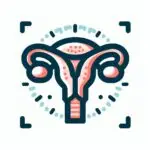Oocyte (egg) freezing for future fertility
Talk to our leading fertility doctor
Speak to us about in person video phone consultations
Oocyte Freezing (egg freezing)
Egg freezing, also known as oocyte cryopreservation, is a process where a woman’s eggs are extracted, frozen, and stored for future use. It’s a method often utilised by women who want to preserve their fertility for various reasons, including medical treatments that may impact fertility, career pursuits, or personal circumstances.
The process typically involves several steps:
- Ovarian Stimulation: The woman undergoes hormonal injections to stimulate her ovaries to produce multiple eggs.
- Monitoring: The woman’s progress is monitored through blood tests and ultrasound to ensure the eggs are maturing properly.
- Egg Retrieval: Once the eggs are deemed mature, they are retrieved via a minor surgical procedure called transvaginal ultrasound aspiration.
- Freezing: The eggs are then frozen using a process called vitrification, which involves rapidly cooling them to very low temperatures to prevent ice crystal formation, which can damage the eggs.
- Storage: The frozen eggs are stored in specialized facilities, typically in liquid nitrogen tanks, until they are ready to be used.
Egg freezing offers women the opportunity to delay childbearing while preserving the option of having biological children later in life. However, it’s important to note that success rates can vary, and it’s not a guarantee of future pregnancy. The age at which the eggs are frozen, the quality of the eggs, and other factors can influence the likelihood of success.
Dr Elgey and team have a proven track record in managing and performing IVF procedures. With success rates above industry standards we strive to help you achieve the best outcomes.
Frequently Asked Questions
No upper limit for the length of storage of frozen eggs has been established. Generally, the eggs can remain frozen an useable for as long as you need them
The number of eggs we recommend you freeze increases with age and the desired probability of a baby. For younger women ten may be sufficient for at least an 80-90% chance of a baby.
As a general rule, freezing some eggs by your mid-30’s is optimal. This is because the ability of each to develop into a baby decreased with age. Additionally, most women will produce less eggs in a collection cycle with age and this may mean having to do 2 or more egg freeze procedures.
It is not possible to guarantee a baby at a later time with egg freezing. This procedure should only be viewed as a backup option if you are having issues at the time you are trying to conceive.
Factors that affect the likelihood of having a baby are many, like Age, egg quality, fertilisation and development rates, and factors within your body when the eggs are used
Generally, from starting medications to having your eggs frozen takes no longer than 14 days. You may need one to two appointments over this time and you ca go to work as usual
I would like to know more about
Why you should choose to see us

Personalised
Care
A team that knows you’re not just a number

Science and Results
Working with alternative options

Telehealth
Options
Video or mobile for your convennience








